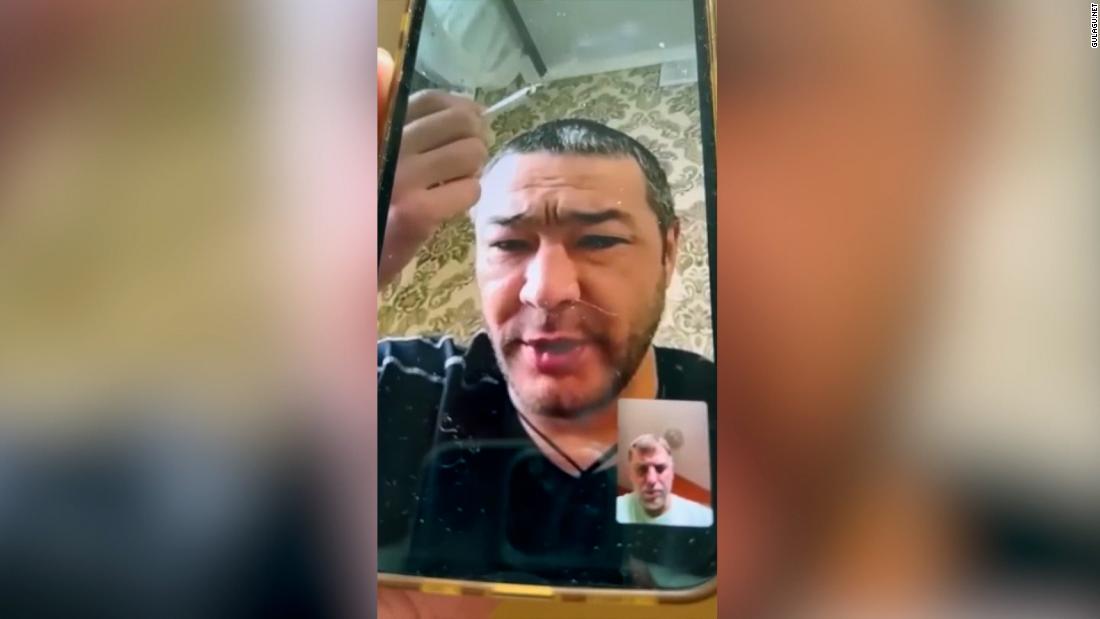With every passing day, the thought of JD Vance being a heartbeat away from the presidency gets more difficult to contemplate. From his comments about “childless cat ladies” to his suggestion that parents should have “more power...than people who don’t have kids,” the rhetorical skeletons in Vance's closet have come back to haunt him.
Vance is now “the least popular vice presidential candidate in modern history.” Since his nomination to the Republican ticket, he has shown himself not to be ready for prime time.
The first-term senator offered the latest example during a Sept. 15 interview with CNN. As U.S. News reports, after first attributing the tales about Haitian immigrants eating pets in Springfield, Ohio, to first-hand accounts from his constituents, Vance “admitted to CNN’s Dana Bash....that he and former President Donald Trump have been pushing false tales about Haitian immigrants eating pets in Springfield, Ohio, to gin up media coverage on immigration.”
This admission followed the usual complaints about the media. “The American media,” Vance suggested, “totally ignored this stuff until Donald Trump and I started talking about cat memes. If I have to create stories so that the American media actually pays attention to the suffering of the American people, then that’s what I’m going to do.”
“You just said that you’re ‘creating’ a story,” Bash responded. “You just said that this is a story that you created,” she repeated. Vance replied, “Yes!” before trying lamely to cover his tracks.
Vance seems to have learned from former President Trump, the unchallenged master of prevarication. Yet, as shocking as Vance’s admission was, his candor was refreshing. Trump never admits when he lies, even when confronted with iron-clad evidence of his falsehoods. That is because, as Matthew Yglesias said in 2017, Trump is more of a bulls---ter than a liar.
“The liar,” Yglesias explained, “wants to be seen as the one telling the truth. The bullsh--er just doesn’t care. That’s Trump. During the course of the 2016 campaign, he said over and over again that America is ‘the highest-taxed nation in the world,’ which isn’t even remotely close to being true. But he kept saying it, despite having been called out repeatedly.”
Listening to Vance on CNN, I didn’t have the sense that he cared much whether what he said about Haitian immigrants was correct.
That politicians lie is hardly news (though Trump and his running mate may be in a special category). Various writers over the years have offered different justifications for lying in politics.
Plato, the famous ancient Greek philosopher, defended what he called “the noble lie” — that is, one that “would have a good effect,” making people “more inclined to care for the state and one another.”
But the noble lie, in Plato’s view, required the strongest justification. It should be the exception, not the rule, in political life.
Niccolo Machiavelli, the 16th century Italian thinker, offered a different view. “Our experience has been that those princes who have done great things have considered keeping their word of little account and have known how to beguile men’s minds by shrewdness and cunning. In the end, these princes have overcome those who have relied on keeping their word.”
There was nothing noble about the pet-eating story Vance created; his falsehood did not make people more inclined to care for one another. Quite the opposite.
Vance also may have been willing to admit that he created a story because the MAGA faithful have a high tolerance for lies told by the leaders of their cause. That is why pointing out how much Trump lies makes very little difference to his supporters — or that Vance called Trump “America's Hitler” before he was elected to Congress
Writing in the New York Times in 2018, Daniel Effron noted that “In his first 400 days in office, President Trump made more than 2,400 false or misleading claims....Some supporters no doubt believe many of the falsehoods. Others may recognize the claims as falsehoods but tolerate them as a side effect of an off-the-cuff rhetorical style they admire. Or perhaps they have become desensitized to the dishonesty by the sheer volume of it.”
For Effron, the key to understanding why Trump and Vance’s supporters put up with so many fabrications is that they are filtered through a partisan lens. When a falsehood “resonate(s) with people’s politics,” they tend to “reflect on how the falsehoods could have been true.” This strategy “can convince supporters that it’s not all that unethical for a political leader to tell a falsehood.”
Another explanation highlights the fact that the MAGA faithful identify with Trump and see him as embodying the “will of the people.” They accept his lies because they believe that what he says is designed to help them. As they see it, unfounded claims about migrants eating cats and dogs is just part of the effort by Trump and Vance to protect Americans from the dangers of illegal immigration.
This may explain why, as journalist Daniel Dale says, even though Trump spouts a “seemingly endless stream of exaggerations, evidence-free accusations, implausible denials and other falsehoods … Trump has also managed a remarkable feat: maintaining a reputation among millions of Americans as a man of rare honesty.”
In this context, supporters view the Republican ticket’s lies “not as failures of character but rather as weapons of war.” They are accepted as a means to “win the moment.”
Finally, Trump and Vance can get away with falsehoods because they are appealing to a constituency of angry people. As psychologists Jeremy Yip of Georgetown and Maurice Schweitzer have found, “(A)ngry individuals are less concerned about the welfare of others, and consequently more likely to exhibit self-interested unethical behavior … (including) self-serving deception.”
As the 2024 campaign moves into the homestretch, it remains to be seen whether Vance will give himself over fully to Trump’s world of distortions and falsehoods. His cruel lie about Haitian migrants is not a promising sign.
Matt Lewis explains, “In the MAGA culture war, you have to break some eggs to make an omelet. What’s notable this time is that Vance just confessed to breaking them on live TV.”
“It’s one thing,” he continues, “for a pol to lie about his resume or voting record. It’s another thing entirely to lie about innocent, vulnerable people whose lives might now be at risk.”
Lewis then asks exactly the right question: “What kind of person would be willing to do that?”
In JD Vance’s case, the answer is that he is the kind of person of whom Machiavelli would be proud. On Nov. 5, voters will decide whether that is the kind of person they want to be entrusted with helping shape the fate of our republic and of the world.
Austin Sarat is the William Nelson Cromwell Professor of Jurisprudence and Political Science at Amherst College. His views do not necessarily reflect those of Amherst College.















 English (US) ·
English (US) ·